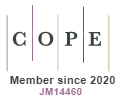Inteligência artificial, pós-humanismo e Educação: entre o simulacro e a assemblagem
DOI:
https://doi.org/10.5585/44.2023.23906Palavras-chave:
inteligêmcia artificial, pós-humanismo, cognição distribuída, consciência, ChatGPTResumo
Argumenta-se contra a personalização de agentes de inteligência artificial (IA) generativas baseadas em modelos de linguagem natural tais como ChatGPT e Bard. Propõe-se que projetar “humanidade” nesse tipo de artefato é uma forma de apego antropocêntrico improdutivo educacionalmente; sugere-se, como alternativa, o modelo da assemblagem cognitiva (novo inconsciente) de Katherine Hayles, no qual cognições técnicas (não-conscientes) produzem modos de atenção-reconhecimento que têm agencia moral e política, mas não se confundem com consciências humanas. Explica-se a projeção de uma teoria da mente no artefato a partir do arcabouço da pós-fenomomenlogia e adverte-se que nem demonizar a inteligência artificial, nem tratar esses simulacros como inteligências de facto, “empodera” o humano, mas apenas reencena versões progressivamente mais reducionistas do humano idealizado do humanismo. Urge que se utilieze de forma mais transparente as articulações entre consciência e modos não-humanos de atenção-reconhecimento para que tanto estudantes IAs não se tornem cada vez menos “inteligentes”.
Downloads
Referências
BADMINGTON, N. Mapping Posthumanism. Environment and Planning A: Economy and Space, v. 36, n. 8, p. 1344–1351, ago. 2004. DOI: https://doi.org/10.1068/a3712
BATESON, G. The Cybernetics of “Self”: A Theory of Alcoholism. Psychiatry, v. 34, n. 1, p. 1–18, fev. 1971.
BATESON, G. Mind and nature: a necessary unity. 1st ed ed. New York: Dutton, 1979.
BATESON, G. Steps to an ecology of mind. Northvale, N.J: Aronson, 1987.
BENNETT, J. Vibrant Matter: A Political Ecology of Things. Durham: Duke University Press, 2010.
BOSTROM, N. The transhumanist FAQ: a general introductionthe World Transhumanist Association, 2003. Disponível em: <https://www.nickbostrom.com/views/transhumanist.pdf>. Acesso em: 17 nov. 2020.
BRAIDOTTI, R. The posthuman. Cambridge, UK ; Malden, MA, USA: Polity Press, 2013.
BUZATO, M. E. K. Can reading a robot derobotize a reader? Trabalhos em Linguística Aplicada, v. 49, n. 2, p. 359–372, dez. 2010. DOI: http://dx.doi.org/10.1590/S0103-18132010000200004
BUZATO, M. E. K. Entre o padrão e a presença: buscando uma heurística para a biopolítica do pós-humano. Em: BUTTURI JÚNIOR, A.; SCARSO, D.; LEME, J. L. C. (Ed.). Antropoceno, biopolítica e pós-humano. 1. ed. Campinas, SP: Pontes, 2020. p. 328.
BUZATO, M. E. K. (How) Can Critical Posthumanism Help to Decolonize Tertiary Education in the South in the Age of Cognitive Capitalism? Em: MAKONI, S. et al. (Ed.). The languaging of higher education in the global South.. New York: Routledge, 2022. p. 211–227.
DELEUZE, G.; GUATTARI, F. Mil platôs: capitalismo e esquizofrenia. Traducao Célia Pinto Costa. 1. ed. Rio de Janeiro: Editora 34, 1995. v. 1
FERRANDO, F. Posthumanism, Transhumanism, Antihumanism, Metahumanism, and New Materialisms: Differences and Relations. Existenz, v. 8, n. 2, p. 26–32, 2013. Disponível em < https://existenz.us/volumes/Vol.8-2Ferrando.html> Acesso em 31 Dez, 2021.
GONSALES, P. AI literacies: letramentos digitais de inteligência artificial e a educação na perspectiva pós-humanista. a sair. Universidade Estadual de Campinas, Campinas, SP, a sair.
GONSALES, P.; AMIEL, T. Inteligência Artificial, Educação e Infância Educação na contemporaneidade: entre dados e direitos. Panorama Setorial Cetic v. 12, n. 3, p. 1–21, 2020. Disponível em < https://cetic.br/media/docs/publicacoes/6/20201110120042/panorama_setorial_ano-xii_n_3_inteligencia_artificial_educacao_infancia.pdf> Acesso em 31 Dez, 2021.
HARARI, Y. N. Homo Deus: a brief history of tomorrow. London: Harvill Secker, 2016.
HAYLES, N. K. Cognitive Assemblages: Technical Agency and Human Interactions. Critical Inquiry, v. 43, n. 1, p. 32–55, set. 2016. DOI: https://doi.org/10.1086/688293
HAYLES, N. K. Unthought: the power of the cognitive nonconscious. Chicago: The University of Chicago Press, 2017.
HEIDEGGER, M. Ser e tempo. Trad. Marcia Schuback. Petrópolis: Vozes [u.a.], 2007.
HERBRECHTER, S. Critical posthumanism. Em: BRAIDOTTI, R.; HLAVAJOVA, M. (Ed.). Posthuman glossary. Theory. London: Bloomsbury Academic, 2018. p. 94–96.
HUTCHINS, E. Cognition in the wild. Nachdr. Cambridge: MIT Press, 2000.
KOGA, J. Euforia ou Fantasia: Agentes Conversacionais e sua relação com a linguagem. Campinas, SP, 2022. .
KOVÁČ, L. Fundamental Principles of Cognitive Biology. Evolution and Cognition, v. 6, n. 1, p. 51–69, 2000. Disponível em < https://dai.fmph.uniba.sk/courses/CSCTR/materials/CSCTR_03sem_Kovac_2000.pdf> Acesso em 01 Mar., 2019
KURZWEIL, Ray. The singularity is near: when humans transcend biology. New York: Viking, 2005.
LATOUR, B. On technical mediation: Philosophy, Sociology, Genealogy. Common Knowledge, v. 3, n. 2, p. 29–64, 1994. Disponível em < http://www.bruno-latour.fr/sites/default/files/54-TECHNIQUES-GB.pdf> Acesso em 12 Set, 2009
MITCHELL, S. Technogenesis. New York: Roc, 2002.
MOULIER BOUTANG, Y. Cognitive capitalism. Cambridge: Polity Press, 2011.
NAYAR, P. K. Posthumanism. Cambridge: Polity Press, 2014.
ROSENBERGER, R.; VERBEEK, P.-P. (ed.). Postphenomenological investigations: essays on human-technology relations. Lanham: Lexington Books, 2015.
SLOTERDIJK, P. Rules for the human park: a Response to Heidegger’s “Letter on ‘Humanism’”. Em: Not saved: essays after Heidegger. Malden: Polity, 2016. p. 193–216.
WITTKOWER, D. E. What Is It Like to Be a Bot? Em: WITTKOWER, D. E. (Ed.). The Oxford Handbook of Philosophy of Technology. Oxford: OUP, 2022. p. 357–373.
Downloads
Publicado
Como Citar
Edição
Seção
Licença
Copyright (c) 2023 O autor

Este trabalho está licenciado sob uma licença Creative Commons Attribution-NonCommercial-ShareAlike 4.0 International License.
- Resumo 2603
- PDF 1785









